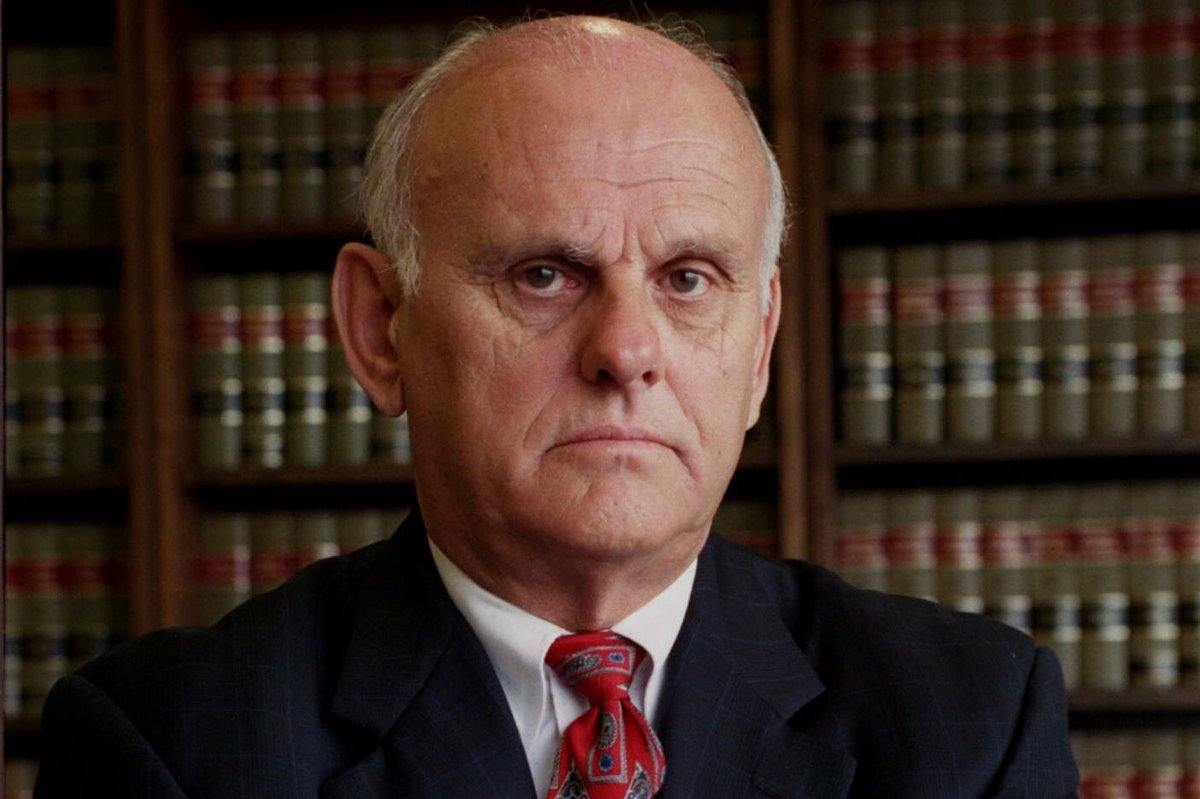The federal judge who temporarily blocked President Donald Trump’s executive order denying U.S. citizenship to the children of parents living in the county illegally is a “tough” legal expert who made lawyers appearing before him “nervous,” according to an attorney and former colleague.
U.S. District Judge John C. Coughenour called the executive order “blatantly unconstitutional” as he issued the ruling in response to a lawsuit brought by Washington, Arizona, Oregon and Illinois on Thursday.

U.S. District Judge John C. Coughenour in Los Angeles on March 23, 2001.
Rene Macura/AP Photo
Why It Matters
The ruling from Coughenour is Trump’s first significant legal setback since he returned to the White House on January 20.
He is already facing several lawsuits in response to some of the executive orders he signed shortly after returning to office and more legal challenges are likely to come.
The order seeking to end birthright citizenship is likely to face an extensive legal battle. It prompted at least five lawsuits brought by 22 states and a number of immigrants’ rights groups. The lawsuit brought by Washington, Arizona, Oregon and Illinois was the first to get a hearing.
What to Know
Coughenour, 83, has a reputation for being a tough and cantankerous judge.
Sam Chapin, a Seattle lawyer who externed with the judge in the 1990s and taught a class with him at the University of Washington School of Law, told Bloomberg’s Anna Edgerton: “He’s completely ethical and he’s very tough.
“In my 30-year career, I don’t think there’s another judge on the state or federal bench that has ever made lawyers as nervous to go into court.”
Law students usually started the semester intimidated by Coughenour, Chapin said, but their opinions soon changed. “He’s a softie but with the exterior shell of a curmudgeon,” he added.
Coughenour, who was born in Pittsburg, Kansas, received his law degree from the University of Iowa College of Law in 1966.
He spent a few years on the law faculty at the University of Washington and then worked as a litigation partner at the now defunct Bogle & Gates in Seattle before President Ronald Reagan nominated him to the federal bench in 1981, according to a biography on the United States Courts website.
He has presided over a number of high-profile cases, including the trial of Ahmed Ressam, the “millennium bomber” who was convicted of plotting to bomb Los Angeles International Airport on New Year’s Eve 1999.
When he sentenced Ressam in 2005, Coughenour rebuked the secret tribunals and other tactics deployed during the war on terror following the September 11, 2001, attacks.
“That experience only strengthened my conviction that American courts, guided by the principles of our Constitution, are fully capable of trying suspected terrorists,” he wrote in an op-ed published in The New York Times in 2007.
He twice sentenced Ressam to 22 years, less than what prosecutors sought, and was twice overturned by an appeals court. Coughenour finally sentenced Ressam to 37 years in 2012.
Coughenour has rebelled against federal sentencing guidelines since they were established in the mid-1980s, viewing them as overly punitive, The Atlantic reported in 2016. Over the course of almost 20 years, Coughenour rode his Harley to visit with men he had sentenced and other inmates at prisons all over the county. He only stopped riding the motorcycle a few years ago at the urging of his wife, according to Bloomberg.
Coughenour took “senior status”—a form of semi-retirement for life-tenured judges over the age of 65 who have completed at least 15 years on the federal bench— in 2006, but continues to hear cases.
What People Are Saying
Coughenour said during Thursday’s hearing: “I’ve been on the bench for over four decades. I can’t remember another case where the question presented was as clear as this one is.”
The Department of Justice said in a statement that it will “vigorously defend” the president’s executive order.
It said: “We look forward to presenting a full merits argument to the Court and to the American people, who are desperate to see our Nation’s laws enforced.”
What’s Next
Coughenour’s ruling on Thursday was a temporary restraining order, blocking the administration from enforcing or implementing Trump’s order nationally for the next 14 days.
He scheduled another hearing for February 6 to hear arguments on whether to issue a longer-lasting preliminary injunction while the case proceeds. Meanwhile, some of the other cases challenging Trump’s order are also getting underway.







